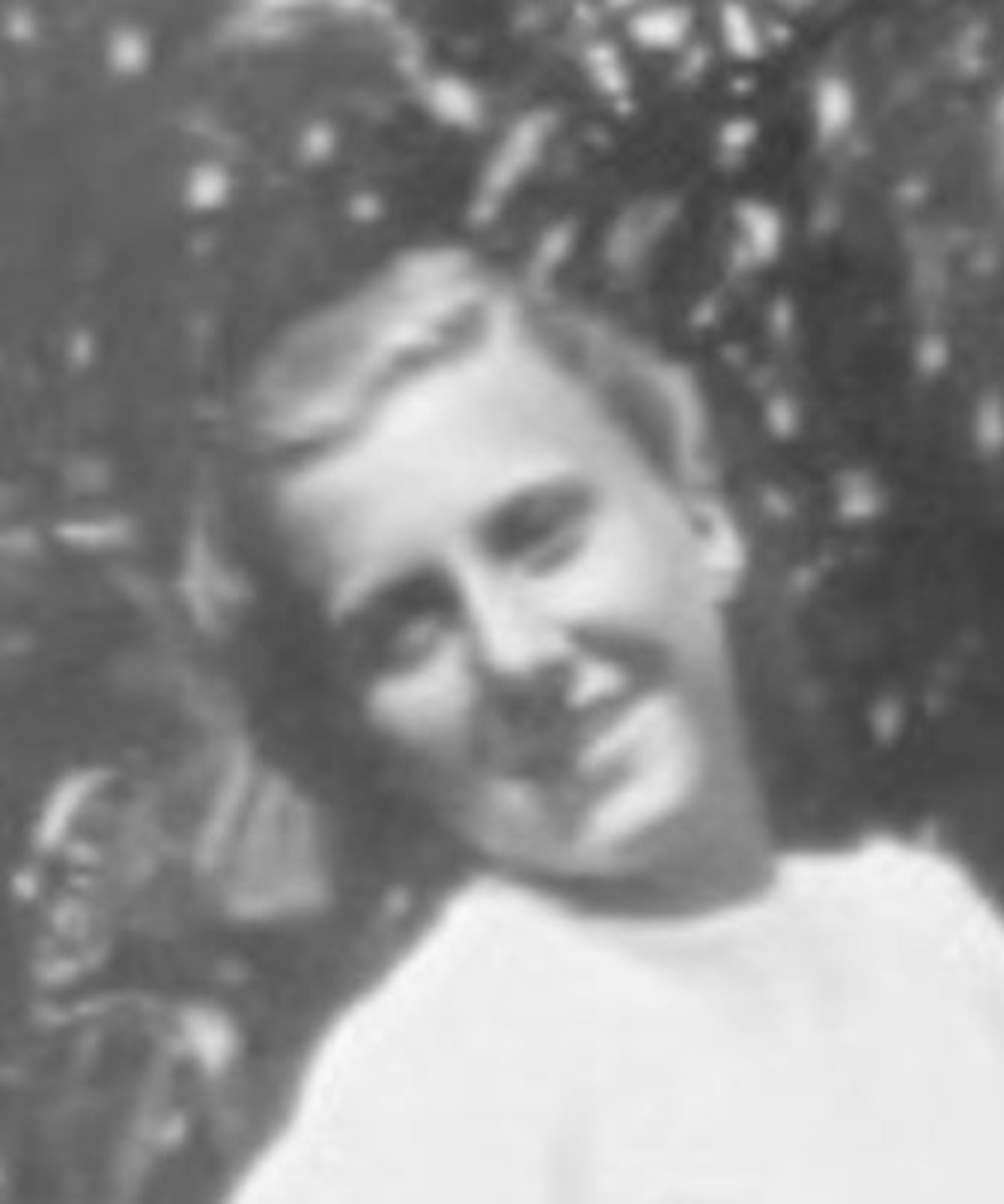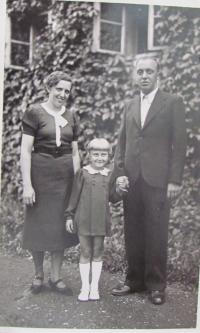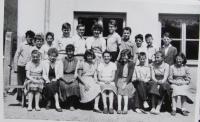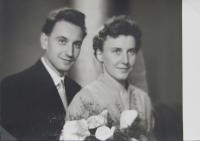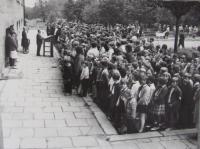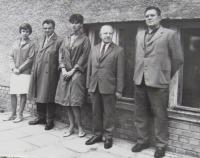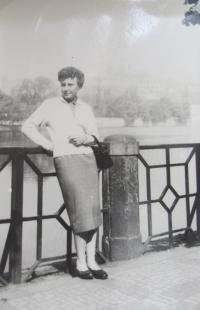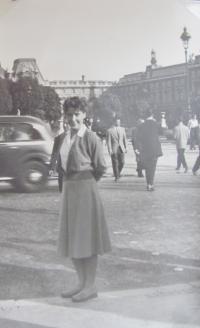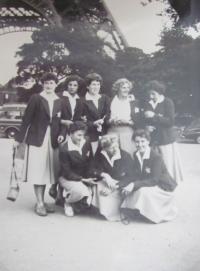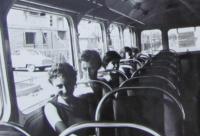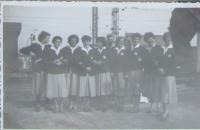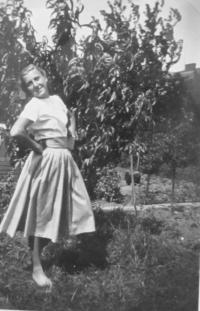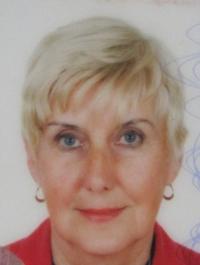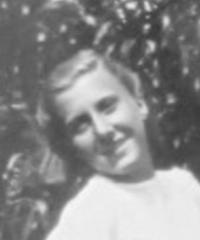Who comes at night is an occupier and who shoots at mothers and children is a killer
Irena Vyslyšelová, née Dudíková, was born in 1933 in Olomouc. She was greatly influenced by her father, a fan and an official of the sports club Olomouc. At an early age, he sparked her interest in sport, which became her lifelong hobby. From the fourth grade of elementary school onwards, she played handball. Later on, she played volleyball for the second division of the Slavia sports club in Olomouc. Between the years 1952 – 1955, she studied at the Pedagogic Faculty of the Palackého University in Olomouc, the fields of Czech language and physical education. She played volleyball actively while studying at the college. As a representative of the Czechoslovak national team, she won the 1957 silver medal at the World Academic Games in Paris. She quit playing volleyball at a top level because of her husband, but still plays tennis today. Since 1955 until her retirement in 1983, she taught at several elementary schools. A major breakthrough for her was the year 1968. Together with her colleagues, they staged a rally in protest against the August invasion and subsequently discussed the situation with their pupils. When the screenings of 1970 came, she received a very negative assessment. Subsequently, she was stripped of her post of director and also the role of a district-level expert for education methodology. A year later, together with eleven other teachers of the same school, she was reprimanded for her politically incorrect attitudes and beliefs in 1968-69. In 1974, she applied for a job of an expert in methodological training of apprentices in the Civil Engineering Construction enterprise Olomouc. Her initially positive assessment at the district National Committee was in turn changed to a negative assessment, which effectively prevented her transfer to the new job. She was allowed to continue to teach, but she was continually moved from one school to another and she was denied any career advancement. Eventually, she gave up on teaching and in 1983, she began working as an instructor at a boarding school in Prague-Modřany. In the early 1990s, she unsuccessfully sought to be rehabilitated.
